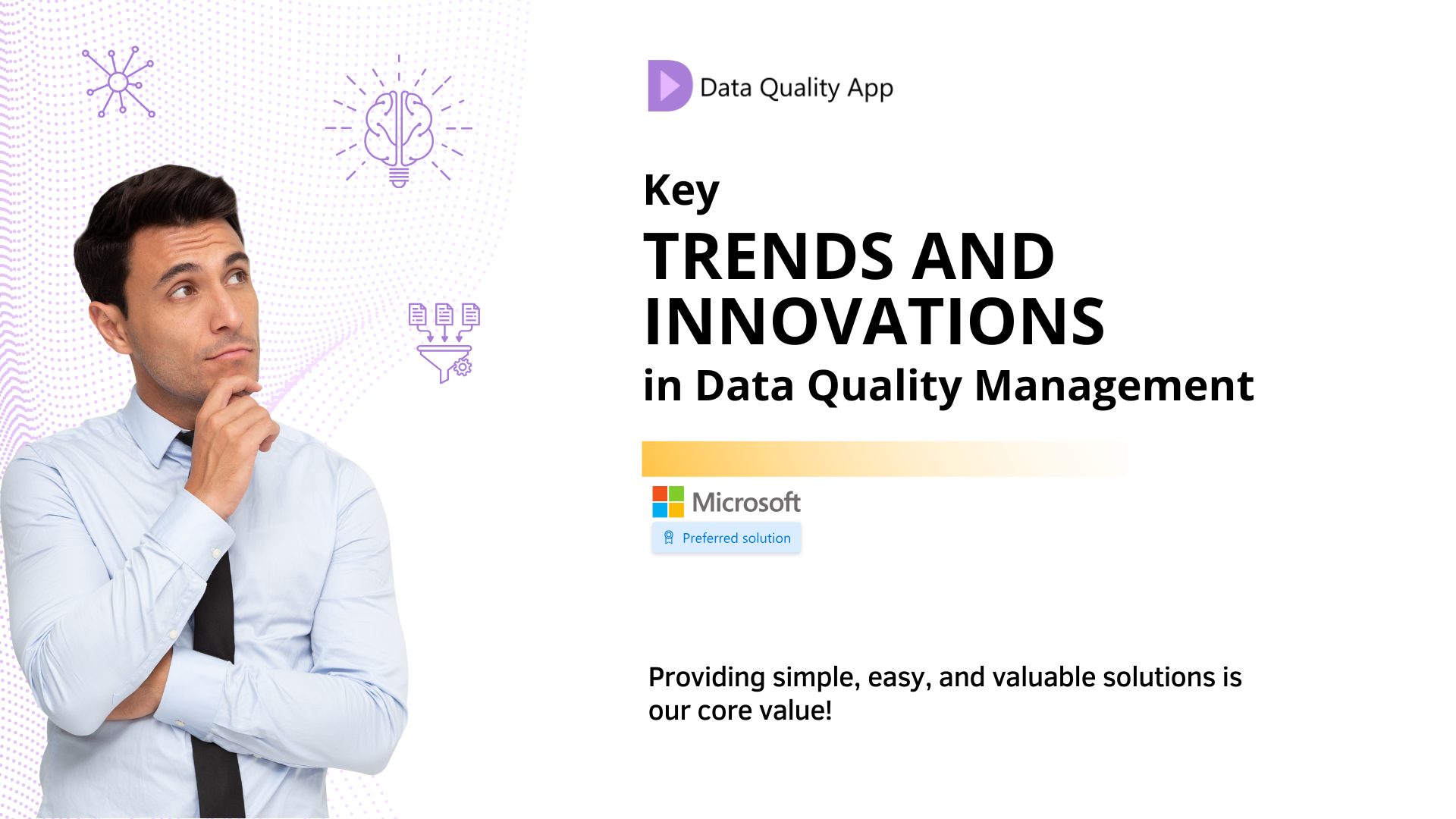
Data Quality Management in Dynamics 365 CE: Key Trends and Innovations
As businesses automate more steps within their revenue cycle, the amount of data they must manage grows exponentially. Today more than ever before, companies using Dynamics 365 CE must maintain accurate records to enable them to make more informed decisions, capitalize on new innovations in the solution such as Microsoft’s Copilot, improve customer experiences, and drive business growth.
As we look ahead, several trends and innovations are shaping the future of data quality management, and companies must be aware of them to ensure they keep up with the market. In this blog, we will explore four of these new trends.
1. Increasing data volumes and the need for effective management
The amount of data generated and retained by companies is growing at an unprecedented rate, and with this growth comes the challenge of managing and maintaining the quality of data. Duplicate records, syntactical inconsistency, and outdated information are common issues that can hinder business operations and decision-making processes.
Effective data management strategies, such as regular data cleansing and validation processes, are essential to ensure that data remains accurate and up-to-date. When it comes to Dynamics 365 CE, setting up business rules that limit the amount of new erroneous data created while the company manages past records can be a good way to set up a sustainable path towards effective data management.
2. Copilot and AI-driven data quality management
Microsoft’s Copilot is a game-changer in the world of data quality management – both due to the amount of data it generates and the new opportunities it offers. Within a sales context, Copilot can be used to help salespeople identify new insights about their prospect customers, discover new opportunities and inroads, and quickly create responses or triggers that expedite the purchase decision.
While it does generate new data at a high rate, AI can also enable companies to improve their data management practices. For example, companies can use broader matching criteria to identify duplicate records so if one salesperson creates a company, ABC Inc., while another create a duplicate and names it ABC, AI tools can help flag this instance of potentially duplicate data than be restricted to exact matches. By automating tasks such as data deduplication, data matching, and data enrichment, Copilot helps businesses maintain clean and reliable data effortlessly. This AI-driven approach not only saves time and resources but also enhances the overall quality of data.
3. Globalization and data quality challenges
The globalization of business has led to a phenomenon where data within each individual company can come in a variety of formats, languages, and from many different sources. This creates additional challenges for companies looking to unify their data and make sense of it because of factors such as different spelling conventions, varying quality of the source information, and local regulation.
A possible solution to this challenge is using phonetic field matching. By identifying the multiple ways each word or even proper noun could be spelled and then ensuring that their system is set up to control redundancies resulting from this, companies can vastly improve their ability to scale. Being able to set different data management rules based on region, business unit, role, or other factors, also helps companies comply with local rules more easily.
4. Data management laws and compliance
Local regulations alone create data management complications. When compounded with industry-centric standards such as HIPPA compliance for healthcare organizations, this can become a nightmare. Data management laws, such as the General Data Protection Regulation (GDPR), are becoming increasingly stringent, requiring businesses to adhere to strict guidelines when managing customer data. Compliance with these laws is not only a legal requirement but also essential for maintaining trust with customers. Businesses using Dynamics 365 CE must ensure that their data quality management practices comply with these regulations to avoid hefty fines and reputational damage.
Other future trends in data quality management
Looking ahead, we can expect to see further advancements in data quality management, driven by technologies such as predictive analytics and AI, purpose-built industry solutions that tailor D365 CE to the needs of each industry, and more.
We can also expect to see greater integration of data quality management with other business processes and systems across the entire revenue cycle which will require that companies address any challenges comprehensively and with more centralized control.
Industry-focused solutions for data quality management
Techdio’s Data Quality App (DQA) for Dynamics 365 CE are completely embedded into the platform – meaning there is no need for any additional integrations or risk of downtime. A Microsoft-preferred solution, Data Quality App offers users with comprehensive tools for managing data integrity rules, set up automatic alerts to assist managers day-to-day, and enables a greater level of reporting and insight for CROS and Sales Directors to always know how their teams are performing.
Learn more about Techdio’s industry-focused solutions here: dataqualityapp.com
